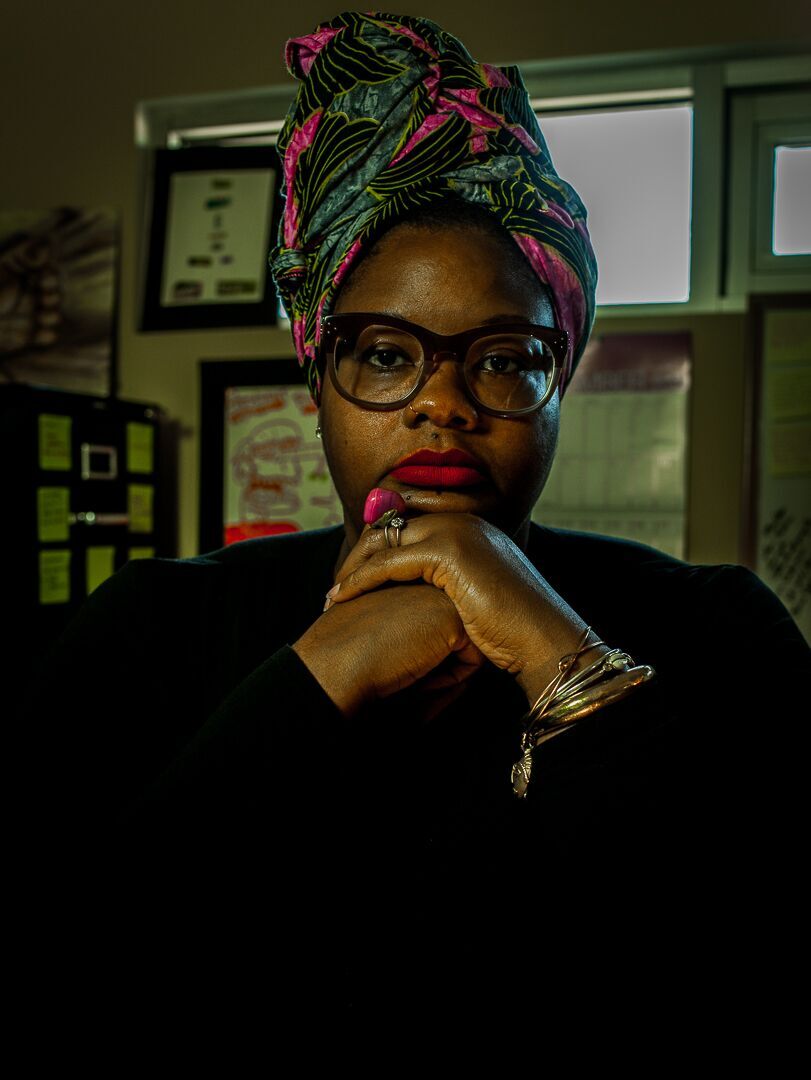Natalie A Collier
The second issue of Prabuddha: Journal of Social Equality carries articles by women authors from anti-caste traditions and black liberation movements exploring the myths of inherent essence or “svabhava” of humans. Authors from the anti-caste traditions examine ‘The Brahmin Svabhava—uninterrupted access to surplus, labor, and property over the ages.’ And authors from Black liberation movements examine ‘White supremacy and its uninterrupted access to surplus, labor, and property over the ages.’ SAVARI is happy to share excerpts from their articles.
An excerpt from White Eminence and the Case for Responsible Freedom
Abstract: White supremacy is a ubiquitous ideology that can surreptitiously greet us, like sunrise in the morning does after yet another night of insomnia, or can punch us squarely on the jaw with brass knuckles after an impassioned lesson about the virtues of turning the other cheek. Micro- and macro-presentations of white supremacy, othering and socio-political phobias are direct results of the insecurities and laziness of colonialists and their contemporary progeny, neocolonialists. Whichever way it shows up (and it does relentlessly, surviving on something more than oxygen), this so-called supremacy and those committed to working on its behalf inherently resist freedom. Conversely, autonomy is inevitable when we take for ourselves chief components of what is necessary for any deep-rooted infrastructure, personal or otherwise: space and time. Taking space and time to learn, strategize, explore and create—individually and cooperatively—are essential to persevere and overturn an intangible, inescapable ideology meant to snuff out our very life force.
A white man lied on me today. It’s not the first time he’s done this either, but it’s the first time I didn’t cry about it. I was angry. I was sad. I was on the verge of tears, but they didn’t fall. My stubbornness kept them in: “It is what it is.”
The first several times I sat down to write about white supremacy’s uninterrupted access to my life and the lives of the people I love (whom I know personally and have never met), and how I fight it, I couldn’t. Thinking about the evil and how I—a fat, black sometimes meek, always opinionated, spiritually-led, southern woman—fight the agents and institutions of white supremacy, I am overwhelmed. The request to write about the fight seems an unfair one, though I know the editors of this journal hope and work for a just world as I do. The request seems unjust because navigating a white supremacist, patriarchal world day in and out, even in my dreams, is unjust. How do I write about a Monday afternoon, a Thursday morning, particularly when I see white supremacy’s impact on my life far more insidiously than most people talk about in common areas? I just write.
In my worldview, there are few things, once drilled down, untouched by white eminence. I choose the word eminence here, instead of supremacy, because I do not believe the settler colonialists who came to this country to be supreme or an authority in anything good. Eminence, on the other hand, solely denotes repute (perhaps notoriety). For the sake of this writing, however, I will oblige status quo and use the more well-known term.
I submit colonialists were and neocolonialists are the most noxious combination of insecure and lazy. (I hear Erykah Badu singing the chorus “What good do your words do / if they can’t understand you” in my head, so let me pause. One of the things we do often is use words and assume the people we’re talking to understand them, weakening our point; or we hardly have a grasp of them ourselves but believe if we don’t use them we’re unfit to engage in systems and community change conversations. Ridiculous. Said simply: Colonialists take over part or the whole of a country politically, then abuse it economically. Neocolonialists use politics, economics, even culture to control other countries, especially ones that were once dependent on them.) Yes, they’re insecure. This insecurity isn’t the impotent refrain we Black folks often hear about whites when we’re trying to explain away personal and even distant anger, hurt and disappointment: “They want to keep it like that because they know we’d do better with it, if we had it.”
Insecurity is usually discussed in the context of intrapersonal relationships. And in those relationships, we consider how insecurities show up and impact the two individuals in the relationship and the roots of said insecurity. One of the things I like best about marriage and family therapy is its systemic approach to individual healing. I bring this up because it’s germane we consider this framework simultaneously with white supremacy.
Please read the full article on Prabuddha

